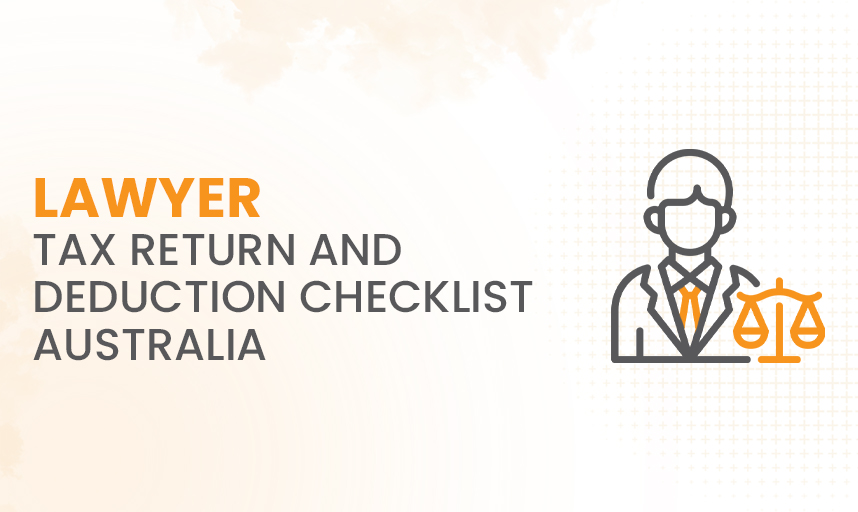For lawyers in Australia, tax time can be confusing amidst the long working hours, court appearances, and various responsibilities.
This blog aims to provide a comprehensive understanding of tax return requirements, deductions, and essential record-keeping practices.
Let’s understand the details to ensure you handle your tax obligations successfully.
Understanding Marginal Tax Rates
Australia uses a progressive tax system, meaning your tax rate increases as your income rises.
Lawyers often fall under higher brackets, but deductions help lower your taxable income, putting more money in your pocket.
Australia’s progressive tax structure means tax rates vary based on income. For the fiscal years 2022–2023 and 2023–2024, the rates range from nil to 45%.
Lawyers need to understand these rates to accurately calculate their tax payable. It’s crucial to note exemptions up to $18,200 and understand the tiered rates applicable to different income brackets.
Importance of Documenting Expenses
Maintaining accurate records is fundamental as Australia operates on a self-assessment tax system. Lack of proof for claimed deductions can lead to rejection. Lawyers should document income, expenses, and deductions meticulously to ensure:
Proof of income and expenses.
Eligibility for all entitled deductions and credits.
Preparedness to support tax return statements if requested.
Minimisation of tax inspections, corrections, and penalties.
Crucial Tax Deductions for Lawyers
Here are some of the tax deductions that layers can claim:
Business Meals: Lawyers can claim deductions for overtime meal expenses under specific conditions, such as entitlement under industrial awards or laws.
Car Expenses: Deductions are possible for travel to court, client meetings, or a second job. However, commuting costs are generally not eligible.
Educational Costs: Lawyers can claim expenses for courses directly related to their job, contributing to ongoing professional development.
Office Supplies (Newspapers, Magazines): Deductions can be claimed for professional periodicals or magazines directly related to the legal profession.
Travel Expenses: Overnight stays for work-related responsibilities, like representing a client interstate, allow deductions for lodging and transportation costs.
Clothes Expenses: Deductible if occupation-specific, clearly identifying the individual as a legal professional.
Working from Home Expenses: Deductible for job-related activities, covering costs like heating, cooling, and equipment repairs.
Other Expenses: Deductions can be claimed for various employment-related costs, including annual practising certificates, Supreme Court library fees, insurance, and professional dues.
What Can't Be Claimed?
Certain deductions are not permissible as per the ATO. Let’s have a quick look at them.
Everyday Clothes: Suits, shirts, etc., even if worn exclusively for work, cannot be deducted.
Social Clubs: Memberships or sponsorships, even if used for networking, aren’t deductible.
Entertainment: Business meals, sporting events, or concerts (even with work discussions) are off-limits.
Daily Meals: Snacking on the job? Even with an employer allowance, these costs aren’t deductible.
Career Change Education: Studying law to become a lawyer while working as a legal secretary doesn’t count.
Client Gifts: Show appreciation in other ways, as gifts cannot be deducted.
Legal Defence: Costs associated with defending yourself if you’re suspended from practice are not deductible.
Grooming Expenses: Haircuts, makeup, etc., even for professional presentation, are not deductible.
Record-keeping throughout the year saves you time and stress come tax season. You must use a system that works for you, whether it’s a dedicated app or even just a labelled folder for receipts.
Conclusion
By understanding what you can and cannot deduct, and keeping good records, you can maximise your tax return and minimise the hassle. But to handle tax deductions, you must seek guidance from a reliable tax agent. And who is better than KPG Taxation? Well, their expert tax specialist ensures that lawyers don’t miss out on eligible deductions, thereby maximising returns and handling all the risk of errors.





